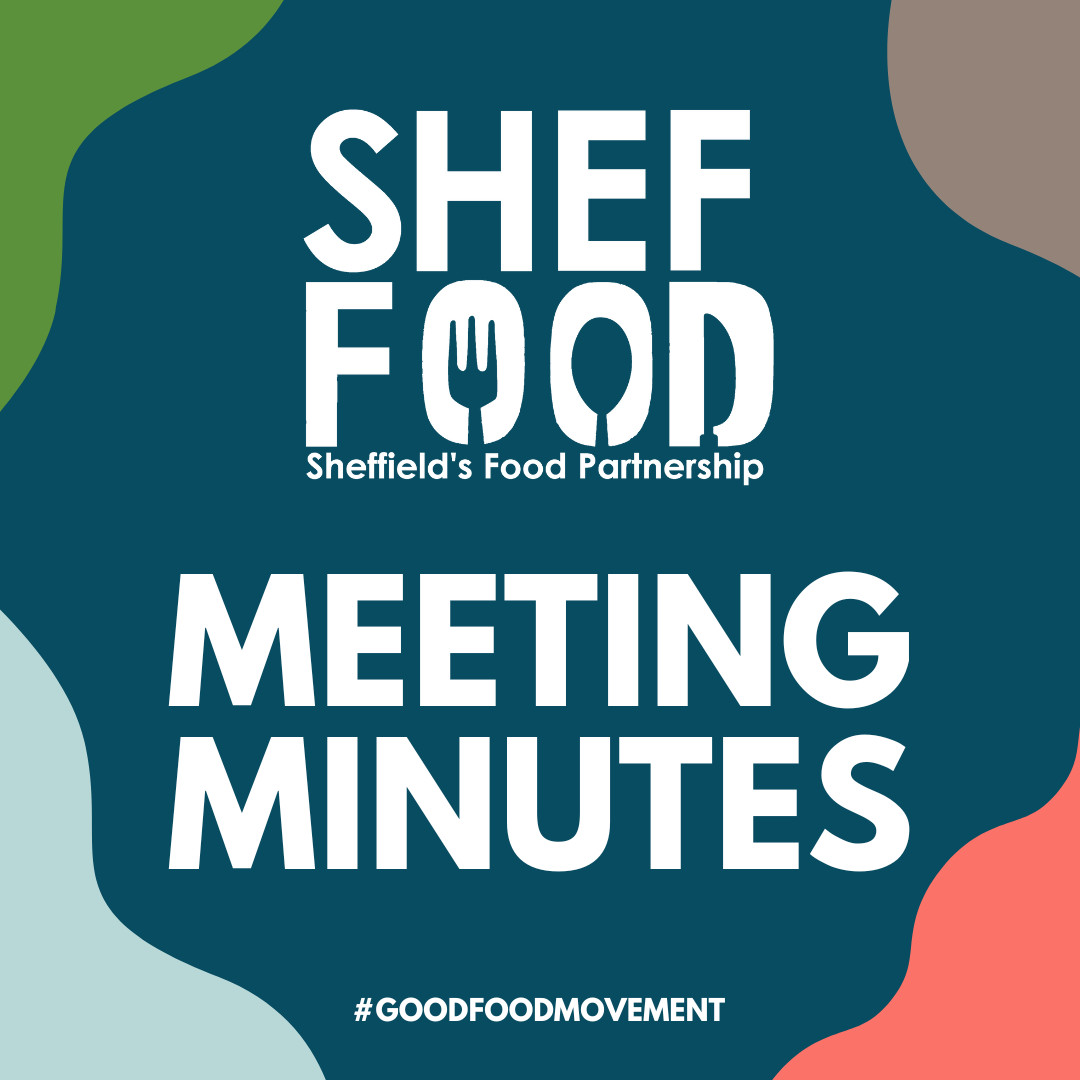| Specific Desired Outcome (long-term vision) | What does success for this look like? | Progress up to now? |
| Nutritious food is more widely available and affordable. | Increased breastfeeding rates Increased Healthy Start voucher uptake Increased FSM uptake Increased HAF uptake Affordable food clubs in every neighbourhood Improved food retail offer Food deserts Improvement in childhood obesity data Uptake of services by eligible population Amount of fruit and veg produced within city boundaries Number of organisations achieving awards or having policies to underpin healthy food offer Question of what outcome we should be measuring as top level marker of success e.g. reduced hospitalisations/deaths attributable to weight/diet? reduced child referrals to live lighter scheme? | Population Level: Already have a number of community pantries, pay as you feel cafes, social eating spaces etc Use the food ladders work and food access plan create a greater number of community food spaces that provide access to affordable nutritious food e.g. social eating spaces and affordable food clubsDevelop the communal food sourcing proposal to create an affordable food infrastructure for the city and increase the volume of affordable nutritious food coming into the city e.g. through surplusesFSM auto-enrol ensures families get their FSM entitlementSettingHoliday Activities and Food programme – deliver nutritious food but also build in nutritional education. Approx 40% uptake by eligible children Council venues that offer food (leisure, entertainment, parks cafes, other leased venues) – requirements in contracts and operating agreements to ensure a healthy food offer In any setting where a food strategy partner has control or influence we use that to create a shift towards healthier (and more sustainable food offers) and as an opportunity for education/awareness raising Breastfeeding friendly award – breastfeeding friendly hospitals and venues Schools and school caterers promote FSM uptake. Suggested concrete action for council: universal FSM has been costed at £7 million – too mcuh – but instead SCC to explore policy of all households receiving universal credit also being entitled to FSM. Need to capture good practice amongst partners such as the local NHS and our Universities, many of whom are already taking action to improve the food they serve, help those in food poverty and have food policies in place or in development Research is taking place at SHU around replacing sugar and other ‘unhealthy’ ingredients in school meals, with healthier alternatives (so change is made at source/production, not individual choice) Individual:Infant feeding support provided by midwives, health visitors and early years services Midwives (and other early years services) encourage uptake of healthy start vouchers amongst eligible families |
| There are reduced opportunities for less healthy food to be marketed and it is less widely available. | Policies are implemented in council and across partner organisations | Population Level: Hot Food Takeaways Policy in draft Local Plan which will limit proliferation and restrict new outlets in close proximity (800m) to secondary schools Council policy of advertising and sponsorship in development Council venues that offer food (leisure, entertainment, parks cafes, other leased venues) – requirements in contracts and operating agreements to limit less healthy food on sale and limit marketing/sponsorship Need to capture good practice amongst partners such as the local NHS and our Universities, many of whom are already taking action to improve the food they serve and have policies in place or in development SettingEat Smart programme supports schools to think about food across the school day e.g. snack and packed lunch policies In addition to council’s actions on advertising, Sheffield Hallam Uni want to do some work on tackling unhealthy advertising on the Uni campus (e.g. currently, brands like Dominos advertise on campus, at freshers fairs etc. – what if they were replaced with local, healthy brands?) |
| People who need help can access it in a place and format that is appropriate and accessible to them. Services are person-centred and compassionate, recognising the complex range of factors that affect people’s food choices. | Staff in front-line services are confident and competent to have conversations about diet and weight. Brief interventions and referrals into services are carried out in a supportive, compassionate way Support services adopt a compassionate approach to weight Monitoring data shows that services are being accessed by under-served populations and/or groups at increased risk of obesity and poor diet. | Individual: Training on good conversations regarding diet and weight is available via Live Lighter Specialist service offer includes community weight management (child and adult), specialist weight management (child, adult service to be commissioned by ICB), Diabetes prevention programme and community -led diabetes prevention/self management support, Community wellbeing practitioners and related voluntary and community sector initiatives e.g. cooking skillsNeed to outline any specific commitments and work to date relating to compassionate approaches and/or engaging at risk/underserved groups Universal services offer includes maternity, health visiting, school nursing, family centres, primary care, secondary care. Need to outline any specific commitments and work to date relating to good conversations, support offered, referral pathways etc Sheffield 0-19 year health visiting service: BFI gold award. Healthy start vitamins. Weaning sessions. Healthy eating 1-5 years plus school children. This Mum Moves postnatal intervention.SHINE: 1. Educating school staff to 12 week programmes as part of tier 1 … PSHE curriculum. Tier 2 after school clubs, specialist core groups. 2. Community programmes. Tier 3 greater than 99.6 … with comorbidities. 1 year programme 12 weeks x3 modules. 3. Cook and eat modules. 4. Counselling service for CYP with underlying issues related to excess weight. i.e. bullying, weight stigma, anxiety, self-harm. 5. Sports matches. 6. National categories PPI, GMP, NHS, Bite Back. Blocks – leisure centres, fast food access, secondary school tuck shops, junk food, sugar, oral hygiene.Examples of existing progress:Zest receive school, self- and GP referals to Live Lighter weight management scheme – education and empowerment course- (12 adult groups, 8 children/family groups) |
| People are better informed about what a healthy diet is, why it is important and how to access it – through communications and through consistency of messaging from universal services | Staff in front-line services are confident and competent to have conversations about diet and routinely do so. There is a broad range of community initiatives that educate and engage people around food – growing, cooking, eating etc | Population level:Sheffield is Sweet Enough Campaign Combining healthy and seasonal eating in qualifications offered by Sheffield Colleges (horticulture and catering) – Rene speaking to Sheffield colleges about this. SettingEat Smart work in schools ensures nutrition and cooking is delivered via the curriculum Eat Smart Sheffield: an initiative that commissioned food for life within schools and offers support in them working towards their rewards. Currently on our third small grant round where we award schools £250 for a project within their school that promotes healthy eating and healthier attitudes.Live Lighter: 12 week groups (adult). Education, community, empowerment, small sustainable changes. Weekly weight facilities available. Weekly groups (families). Exercise, food exposure and tasting, joint child and parent carer upskilling. HAF includes nutritional education Healthy Early Years award scheme Individual Community programmes and initiatives that include education, skills etc related to food (detail specific initiatives) Front line services (maternity, health visiting, school nursing, family centres, primary care, secondary care) detail any specific good practice or commitments |
An additional point was raised by Gareth that doesn’t necessarily map neatly onto existing ‘desired outcomes’ was around understanding the relationship between food and health as also extending to mental health (e.g. how mental health can be negatively affected by diet, food insecurity, eco-anxiety – but could also be positively transformed via many of the existing and proposed initiatives in the city).

